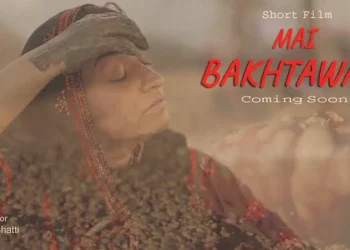A steady traditional beat and a simple finger-style string motif stitch together Faakhir’s iconic hit
August has dawned upon us, which means only one thing: it is time for the nation to be cloaked in green as patriotic hits from the days of yore descend upon us. Although that is no bad thing when one of those patriotic hits is Faakhir’s iconic feel-good Tere Bina Dil Na Lagay.
Since we still have no access to a time machine, music is one of the only avenues currently open to us to truly step back in time. With that in mind, Tere Bina Dil Na Lagay plunges us straight back to the summer of the early 2000s, when you couldn’t move without being slammed with this song about a hundred times a week – be it on TV, the radio, at a school function, or even in your sleep. Because that is what the best earworms do: they find a way to slip into your consciousness, and then embed themselves even deeper into your subconscious, ready to spring to attention at a moment’s notice. And when they do, those earworms will be accompanied by a flood of memories and emotions you haven’t experienced in years.
The formula for immortality
Even if you weren’t around in 2003 and thus immune from the tentacles of nostalgia, you will understand after only one listen that Tere Bina is going to be around for decades to come. As a former iconic hit, this is a bonafide earworm that sticks to you like glue even if you can’t understand a word of it. Music students, take note. If what you crave is immortality, it doesn’t matter what language you sing in as long as you stick to these four simple rules (which is more than the total number of chords you will use if you are following the Tere Bina formula).
First, you need a steady traditional beat forming the backbone of your track. If you want to tug the maximum amount of heartstrings in one go, it is an excellent idea to widen your reach by crafting a patriotic track. If you choose this to be your mission, then your Western drum kit can momentarily languish in a corner. Today, what you need is a traditional beat that will instantly reel in your listeners and get them swaying hypnotically in time to the beat.
Of course, percussion alone isn’t going to do the job. You want your listeners to do more than just mindlessly sway to the beat; you want something that will instantly illuminate them in sunshine and happiness as they sway, something that will turn on the waterworks years down the line as they yearn for happier, simpler times. No, this does not call for a stirring full string orchestra or a studio full of musicians. Do what Faakhir did. Less is more. A simple happy high-pitched finger-style string motif running throughout will stitch the fabric of your song with perfection.
Third, put on a sturdy vocal performance. Not complex, mind – there is no need to start crying if you haven’t got a high range. We are not in opera territory here. No one other than opera singers can hum operas, so you can forget about immortality if you are going to write complex melodies. On the other hand, if you know how to belt, there is a lot you can accomplish with minimal range – just ask Faakhir! For all we know, the man may have the range of four octaves, but does anyone need it in the making of a hit? The answer is a loud, resounding no. Strong unwavering vocals singing a hummable tune – that is all the dexterity you need.
The final rule – and this is a highly personal opinion – is that it will help immensely if you do what Faakhir did and write the whole song in the key of B major. A quick Google search will show you that B is considered the happiest note, and by that extension, the happiest key (and don’t listen to what anyone else tries to tell you). This B-key rule is by no means set in stone – it is a bit like saying yellow is the happiest colour – but does it have any bearing on whether Tere Bina is one of the happiest songs ever to come out of the Pakistani music industry? Absolutely. (To prove this scientifically, I altered the Tere Bina video so it plays at a different pitch, and let’s just say that Faakhir was a wise man to keep it in the key that he did.)
Going back in time
Having achieved the enviable task of crafting a timeless hit, Faakhir can rest easy knowing that it will be revisited for as long as YouTube is around. (And let us pray that YouTube’s demise never comes.) “Why do I have a smile on my face when I listen to this song?” ponders one nostalgia-fuelled commenter in 2024. Rose-tinted glasses and nostalgia are the twin themes followed by nearly every other commenter under the video for the song. “So many memories – just brought tears to my eyes,” writes another emotional user. “Don’t you wish you could turn back time?” pines yet another. “Life was so much simpler back then!”
Life, of course, was in no way simpler back then – just different. The early 2000s were a time when loadshedding ran rampant, when rickshaw strikes would force thousands to climb aboard buses with zero breathing room, and when fed-up students could always bank on the probability of some other form of strike coming along to give them a holiday. And yet, as Faakhir’s Tere Bina proves, that is the power of music. To strip away memories of the bad and leave behind only the good.
Even the man himself cannot resist dipping into the Tere Bina days to connect to his fans. When Faakhir finally climbed aboard the TikTok train in 2022, in pitch-perfect fashion he belted out the lines that are embedded in the DNA of every patriotic Pakistani from the early 2000s: “Tere bina dil na lagay!” The little clip did not go viral, as Faakhir perhaps may have hoped. It was, however, enough to strip away the years and take hardcore fans back to the days of yore, and gift them with an alternate reality that was both simpler and happier than any reality they may have ever lived.










 American Dollar Exchange Rate
American Dollar Exchange Rate